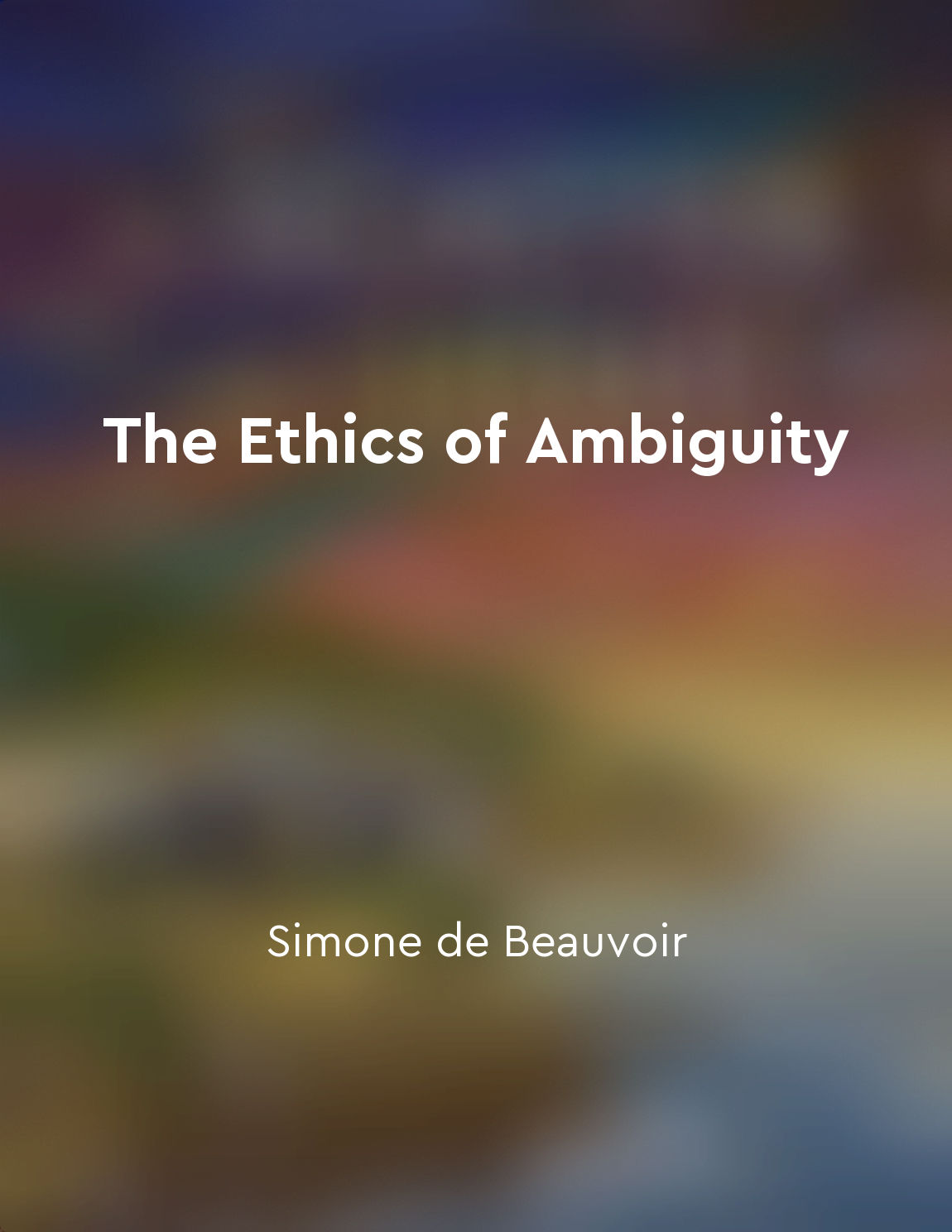Autonomy is essential for moral agency from "summary" of THE CRITIQUE OF PRACTICAL REASON by Immanuel Kant
In order to understand the concept that autonomy is essential for moral agency, we must first grasp the significance of autonomy in moral decision-making. Autonomy, as defined by Kant, is the ability to act according to one's own principles and reasons, rather than being influenced by external factors or desires. This means that an autonomous individual is able to make moral decisions based on their own rational judgment, independent of any external pressures or inclinations. Kant argues that moral agency is only possible when an individual exercises their autonomy in making moral choices. This is because moral actions must ...Similar Posts

Monopolies harm consumers
Monopolies, by their very nature, restrict competition and limit consumer choice. When a single company dominates a particular ...

Focus on solutions rather than blame
When something goes wrong, it's easy to fall into the trap of blaming others. We might blame our children for making a mess, ou...
Experimentation in living
The idea of experimentation in living is a fundamental principle that underlies the philosophy of utilitarianism. It emphasizes...

Iterate and iterate again
The idea is simple: try something out, see how it works, learn from the experience, and use that knowledge to inform the next s...
Autonomy leads to increased engagement and satisfaction
In the workplace, autonomy plays a crucial role in driving employee engagement and satisfaction. When individuals have the free...
Listen actively
Listening actively means giving your full attention to what the other person is saying without interrupting, judging, or offeri...
Freedom is necessary for moral responsibility
In order to understand the concept that freedom is necessary for moral responsibility, we must first consider the nature of mor...
Striving for enlightenment in ignorance
Striving for enlightenment in ignorance is a concept that reflects the paradoxical nature of human pursuit of knowledge. On one...
Ideas arise from impressions through mental processes
According to the principles of human nature, our thoughts and ideas are ultimately derived from our impressions. Impressions ar...

Embracing ambiguity is a form of liberation
Embracing ambiguity as a form of liberation is a radical idea that challenges conventional notions of certainty and clarity. In...
